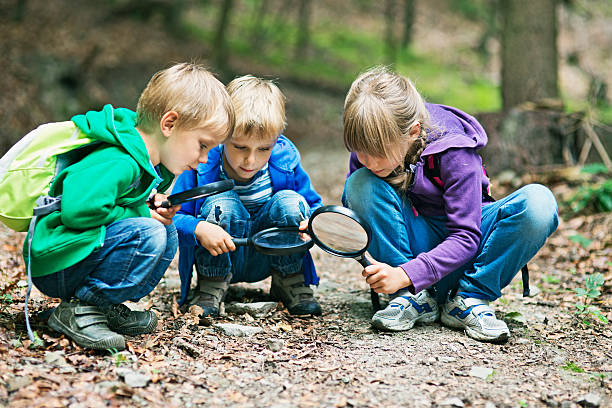Nature-Based Preschools: Connecting Children with the Outdoors

In recent years, nature-based preschools have gained popularity as more parents and educators recognize the profound benefits of outdoor learning for young children. These innovative programs go beyond the traditional classroom setting, immersing children in the natural world and fostering a deep connection with the environment. Nature-based preschools provide a unique educational experience that not only enhances academic learning but also promotes physical health, emotional well-being, and environmental stewardship.
At the heart of nature-based education is the belief that children learn best through direct interaction with their surroundings. This philosophy aligns with the growing body of research that highlights the myriad benefits of outdoor play and learning. Here are three key reasons why nature-based preschools are a valuable addition to early childhood education:
- Fostering Holistic Development: Nature-based preschools offer a holistic approach to child development, addressing cognitive, physical, social, and emotional growth. Activities such as exploring trails, building with natural materials, and observing wildlife encourage curiosity and critical thinking. Additionally, these experiences help children develop fine and gross motor skills, improve sensory awareness, and foster emotional resilience.
- Promoting Physical Health and Well-Being: Spending time outdoors has been shown to reduce stress, improve mood, and boost physical health. Nature-based preschools provide ample opportunities for children to engage in physical activity, which is essential for their overall development. Running, climbing, and playing in natural settings not only strengthen muscles and coordination but also promote a sense of freedom and joy that is often lacking in more structured environments.
- Instilling Environmental Stewardship: By connecting children with nature from a young age, nature-based preschools nurture a sense of respect and responsibility towards the environment. Through hands-on activities such as gardening, composting, and exploring ecosystems, children learn about sustainability and the importance of caring for the planet. This early exposure to environmental education fosters a lifelong commitment to protecting and preserving our natural world.
Nature-based preschools also offer significant advantages for children’s social and emotional development. Outdoor environments provide a rich context for cooperative play, where children learn to work together, solve problems, and develop empathy. The unstructured nature of outdoor play allows for greater freedom of expression and creativity, helping children build confidence and self-esteem. Moreover, the natural world serves as a calming and restorative space, reducing anxiety and promoting emotional regulation.
For parents considering a nature-based preschool, it’s important to understand that these programs offer a balanced curriculum that integrates traditional academic learning with experiential outdoor activities. Children in nature-based preschools are not only taught basic literacy and numeracy skills but also engage in science, art, and social studies through nature-based projects and explorations. This integrated approach ensures that children receive a comprehensive education while benefiting from the unique advantages of outdoor learning.
In conclusion, nature-based preschools represent an exciting and effective approach to early childhood education, providing children with the opportunity to learn, grow, and thrive in natural settings. By fostering holistic development, promoting physical health, and instilling a sense of environmental stewardship, these programs lay a strong foundation for a lifelong love of learning and a deep connection with the natural world. As more parents and educators embrace the value of outdoor education, nature-based preschools are poised to play a crucial role in shaping the future of early childhood education.

